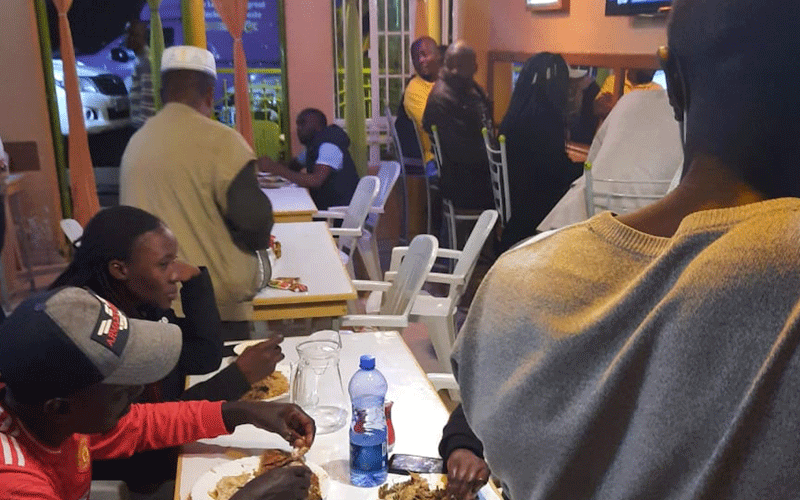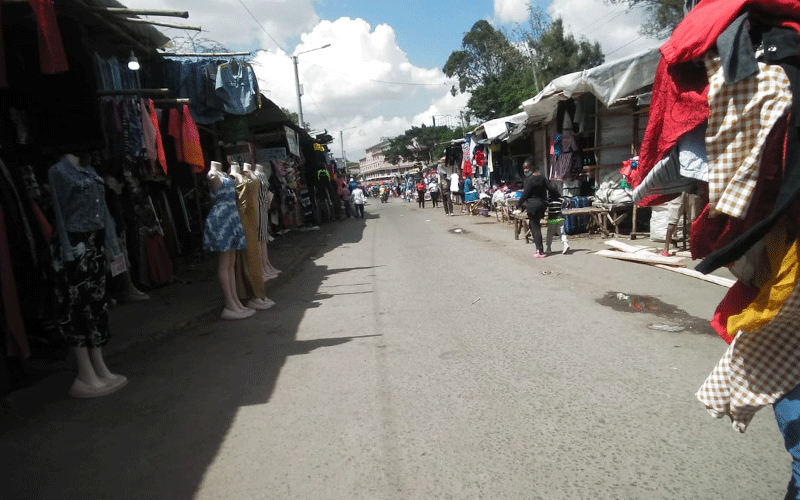Cautious festivities: Agonising times for entrepreneurs

The Covid-19 pandemic has changed every facet of our lives. Then came the thought that life would return to normal in weeks, soon after the pandemic struck.
It soon morphed into months, and probably, it would take years as the virus continues to ravage the globe and present new challenges of mutation.
The impact of the pandemic disproportionately befalls the poorest and the most vulnerable households in Kenya. Enterprenuers too, are feeling the heat.
“I’ve tasted both scenarios: first when I started my hotel business and now during this pandemic.
If I had to rate the situations, I’d say business has not been good this festive season,” says Isaiah Odhiambo Mijungu, Smart Link Hotel director from Migori county.
Two years ago in November, Mijungu, an entrepreneur and teacher, ventured into the hotel industry.
Like any other businessman, he had all the plans for his side hustle.
At first, work as a hotelier seemed to offer him everything he’d hoped for when he moved from his village to Migori town.
“When we started the hotel in 2018, it was booming and we were getting very good returns on investment.

Photo/PD/CLIFFORD AKUMU
We used to get a profit of between Sh100,000 to Sh200,000 per month. And spending around Sh60, 000 to pay workers’ salaries,” he explains.
Quiet affair
As early as April this year, World Bank Kenya Economic Update had predicted growth of 1.5 per cent in 2020 in the baseline scenario, with a potential downside of a contraction to 1.0 per cent, if Covid-19 related disruptions in economic activity last longer.
These disruptions have since spread into the festive season, leaving entrepreneurs with little to celebrate.
During festivities, the hotel sector, for example, always records booming business.
However, since the start of the festive season, Smart Link Hotel has recorded few activities. Mijungu says, “This is likely going to be a quiet affair.”
But now, with the Covid-19 restrictions and protocols and its effects ravaging every sector of the economy, everything has changed.
“Everything has gone down. Our hotel is operating at 60 per cent. Before the pandemic, we used to collect around Sh25,000 per day from sales.
But these days even if you check our records, we rarely make Sh18,000 on sales,” notes Mijungu.
Unlike other hotels within the border town that shut their doors or reduced their worker’s salaries to remain afloat during the pandemic, Mijungu is thankful, his business has remained resilient to the economic shocks of the pandemic.
“We have been able to generate income and pay our workers in time.
We never reduced their salary, we thank God the business has been able to support its overhead costs,” he adds.
Mijungu has since diversified into offering accommodation facilities to try remain more resilient in the wake of the virus.
“We have 15 guest rooms in two wings, which we charge at between Sh600-Sh800.
But due to hard economic times we sometimes are very flexible in our charges going as low as Sh500,” he continues.
Several kilometers in the same town, Barack Ogaja has been selling second hand clothes for several years.
Occupied verandah
“During festive season we are at our sales peak, but this year things are different.
We have really been affected,” he says. Many second hand clothes shops in the area have closed businesses completely.
“This place used to be full with businesspeople. If you came here last year during this time, every verandah was occupied,” he says, showing People Daily the closed shops.
For hundreds of thousands of families, 2020 wasn’t the year of good tidings, but rather the time they struggled to put bread on the table. The pandemic became a propagator of poverty.
“No one comes to buy clothes yet they are hungry,” says Ogaja as he folds his clothes, ready to close the shop.
In Embakasi West, Nairobi County, John Muthamia, who quit driving Uber early this year, says he now earns more selling fruits and vegetables out of the back of his Toyota Fielder, which he still has not paid off after two years as a driver.
Muthamia, a resident of Umoja and a father of two, quit tha taxi business when car loan payments became a problem.
Standing next to the vehicle parked on the side of the road, filled with produce, he says, “I am now able to pay the car loan and feed my children. At least I get something little.
In mid-May this year, in a letter to parliament, Treasury Cabinet Secretary Ukur Yattani had asked lawmakers to approve the Sh53.7 billion post-Covid-19 economic stimulus package to provide credit guarantees, loans to small businesses and help prop up tourist facilities. About Sh3 billion was meant to support hotels as soft loans.
Although the stimulus packages were well-intentioned to cushion Small and Medium Enterprises, experts believe, there is need to rethink on rebuilding businesses and their resilience in case of future shocks.
“The pandemic gives us the opportunity to strategise and strengthen and re-engage policy makers because it is only through that we can address the challenges faced by SMEs,” said Caroline Werunga, programme coordinator, Grantmaking, Urgent Action Fund+ Africa.
Mijungu, though, is optimistic.
“While this festive season our sales have not been so good, we hope, come next year, when the pandemic cases go down, business will pick up again and it will be back where it was when we started the year,” he says.












